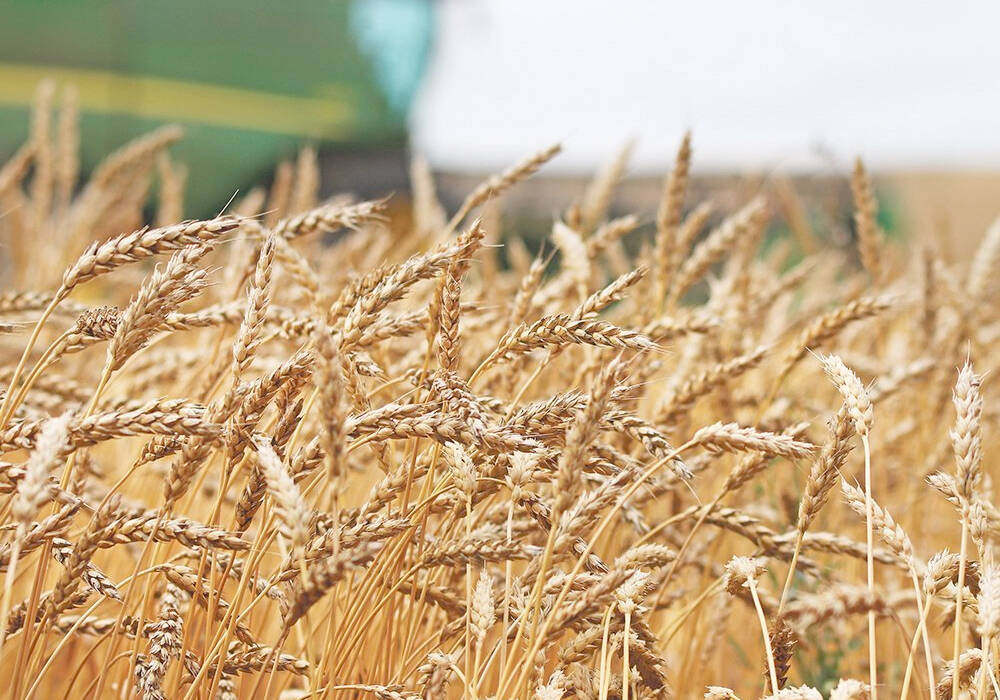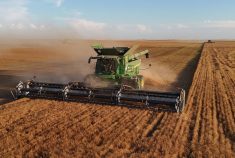The Canadian Grain Commission (CGC) is still tallying how much farmers are owed by Global Grain Canada Ltd. at Plum Coulee, Man. for dry beans they delivered to the firm but weren’t paid for.
However, the potential for farmers not getting what they are owed has been reduced, CGC spokesman Remi Gosselin said in an interview Friday.
“We do believe the company has returned the majority of their inventory back to producers who hold primary elevator receipts,” he said.
Gosselin couldn’t specify the volume, but said “it’s significant.”
Read Also

Prairie CWRS wheat bids firm to start 2026
Canada Western Red Spring wheat bids moved higher in early January, as support from a weaker Canadian dollar countered the bearish influence of small declines for spring wheat futures in the United States.
Why it matters: While CGC-licensed grain companies are obliged to post security to cover what farmers are owed for grain they deliver, but haven’t been paid for during a specified period, sometimes it’s not enough. The more beans farmers retrieved from the elevator means fewer farmers will have to rely on the security to be made whole.
The CGC on Oct. 30 suspended Global Grain’s license, and that of two related companies — Globeways Canada Inc. and Canpulse Foods Ltd., located at Mississauga. Ont. and Kindersley, Sask., respectively — after being notified the firms no longer had security to cover money owed to farmers.
All three companies were placed in receivership Thursday, Gosselin said.
Meanwhile, the CGC has access to $1.25 million in security from Global Grain, $6.5 million from Canpulse Foods and $50,000 from Globeways Canada.
The latter was not doing much direct business with farmers, while the former had not been buying much grain from farmers during the three months before the CGC suspended its license, Gosselin said.
“It may not be an overall good situation, but what it’s doing is making a potentially bad situation a little better,” Daryl Domitruk, executive director of the Manitoba Pulse and Soybean Growers Association, said in an interview Thursday.
“From the grower perspective the ideal would be the company would remain in business and everyone gets paid, but given the circumstances it was fortunate that a lot of growers, apparently, were able to retrieve their beans. That’s going to be helpful to the sector. I have no idea of numbers, but we know there were lineups of trucks at Plum Coulee. There obviously are some people in the system that were being good actors. I think that’s helpful for the industry.”
The CGC has long contended grain sitting in elevators that hasn’t been paid for remains the property of the farmers who delivered it. That’s spelled out in the Canada Grains Act: “The holder of an elevator receipt is entitled to the delivery of grain of the same kind, grade and quantity as referred to in the elevator receipt.”
However, failed grain companies’ secured creditors have argued stored grain is just another asset to be liquidated to cover what they are owed.
With Global Grain it appears the beans were retrieved by farmers before it went into receivership.
“Our view is that if producers delivered grain to an elevator, but they had not been paid for it, it’s theirs,” Gosselin said.
Last year the CGC was preparing to put the issue to a legal test after another pulse crop buyer, ILTA Grain, went into creditor protection while owing farmers millions of dollars for their crops.
“That matter was never settled, but what happened there sort of tweaked producers to their rights as to grain in inventory,” Gosselin said.
The best way to ensure farmers get paid for their grain is to request payment upon delivery, he said.
CGC security only applies for 90 days after a farmer receives an elevator or grain receipt. Farmers have just 30 days of protection after getting a cheque, but within that 90-day period.
“Let’s say for example you are on day 89, you’ve got one day left to cash a cheque to remain eligible,” Gosselin said.
If the cheque is cashed on day 91 and bounces the farmer is ineligible for security payments, he said.
“We have tremendous respect when the Canadian Grain Commission gets involved in these things,” Domitruk said. “We’d advise growers to heed their advice. It’s better to heed their advice than to learn the hard way.”
— Allan Dawson is a reporter for the Manitoba Co-operator at Miami, Man.















